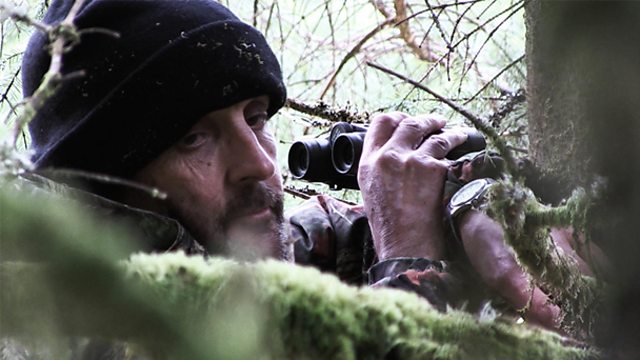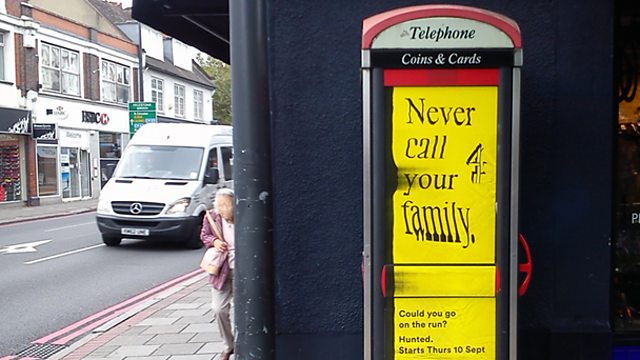Why Channel Four’s Hunted is a compliance minefield

However gripping the stories in Channel Four’s Hunted series, I’m afraid that as a compliance consultant I found my mind wandering to more esoteric questions such as what kind of agreements did its contributors sign before the programme-makers were allowed – apparently – to break into their houses and tap phone calls to their loved ones?
Compliance is an essential process for just about every programme which transmits on television and radio. All broadcasts have to comply with Ofcom’s Broadcasting Code, and most broadcasters also have their own editorial guidelines which staff and independent producers must follow.
Some have in-house compliance teams working alongside lawyers and safety experts. Others use independent compliance consultants like me to help assess a programme’s editorial risks and advise on ways to resolve them, long before production even begins.
I find that a great way to concentrate minds is to ask programme-makers what their defence would be if a viewer complained about a particular aspect of their show.
Hunted’s proposition is that 14 members of the public attempt to stay off the surveillance radar for 28 days. They have £450 to survive on and 30 surveillance experts trying to track them down. On the face of it, it’s a compliance minefield: the risk areas would include legal issues, privacy, consent, surreptitious recording, transparency, deception and duty of care to the ‘fugitives’ and their family and friends.

Establishing the programme genre is a key requirement. It needs to be clear to the audience and contributors exactly what the programme is: a documentary, gameshow, piece of factual entertainment, enhanced reality, or a mix of genres.
The answer to that question would inform decisions about what would be required to ensure transparency – to both the audience and the contributors (or ‘fugitives’).
Hunted offered an interesting disclaimer at the start of the programme: “For the purpose of this series some of the powers of the state have been replicated including CCTV and ANPR [automatic number plate recognition].”
This is interesting to me because it’s an attempt to square a particularly tricky circle: it’s controversial enough when the state uses surveillance to spy legally on every aspect of a person’s life but it’s quite another thing – ie. illegal – for a programme to assume those powers in the interests of entertainment. So the programme isn’t doing that, but it is simulating it (“replicated” in the words of the disclaimer).
And if something is being simulated then the audience can’t be being fooled into thinking it’s real: it must be told. Hence this somewhat mysterious statement placed prominently within the programme.
On the face of it, “replicated” seems to me an unusual choice of word, as opposed to, say, ‘simulated’. But I’m certain a lot of time and effort would have been spent deciding it was the mot juste. It’s possible that it was felt that it gives more credence to the Orwellian ‘big brother’ feel they’re trying to convey within the programme.

The privacy of contributors, on whom the surveillance is focused, is relatively easily dealt with by obtaining their consent to their privacy being infringed. They would, I presume, agree to having the hunters ‘raid’ their homes, monitor their bank records (although the setting up of a special temporary bank account for the purposes of the programme would be one way to avoid wider issues), monitor their mobile phones and landline conversations, hack into their social media accounts and interrogate friends and family.
The onus is on the programme-makers to ensure that what contributors give is their informed consent and that they fully understand all the wider implications of becoming involved in the programme and possible after effects on their lives and those of their families and friends. Family and friends drawn into the action also would have needed to give their informed consent in advance.
Candid Camera-type programmes sometimes seek retrospective consent after filming, but it must be secured before transmission can go ahead. It’s worth remembering that Ofcom considers the gathering of material and the transmitting of it as two different stages, and it is possible to be found in breach of both.
Avoiding incidental breaches of the privacy of people unconnected to the programme, such as passers-by or others on the periphery like the fugitives’ friends, is a greater challenge. Under Ofcom’s Broadcasting Code this might amount to an unwarranted infringement of privacy. A robust plan would need to be in place to avoid these. Blurring of faces and of personal information such as addresses and car number plates in the transmitted programme is one way to achieve this.
Then there’s the need to steer clear of giving away too much detail of, say, surveillance techniques used in counter terrorism which might enable potential terrorists and other criminals to avoid detection or prompt imitation by others. The long tentacles and draconian powers of counter terrorism legislation can ensnare journalists and programme-makers.
The fugitives’ safety and well-being would be a big consideration. The participants are all using cars and lorries – hitching lifts – and could be involved in a road traffic accident or other incidents.
From the two episodes so far, I would say the fugitives get quite an adrenalin rush from the chase, and even more so when they are captured. All the participants would need to be of sound health to be able to withstand the mental and physical rigours of being hunted.
I imagine the safety document would be quite a hefty tome.
Finally, use of the strongest language even in a post-watershed programme requires a presenter warning at the start of the programme, especially because it occurs in the first few minutes after 9pm.
As well as bringing a new twist on the reality genre, Channel Four’s Hunted has also significantly upped the compliance ante. The fact that the UK broadcast regulator exists and has the power to fine up to £250,000 for serious repeated breaches of the Code helps focus producers’ minds and means that compliance is here to stay.
